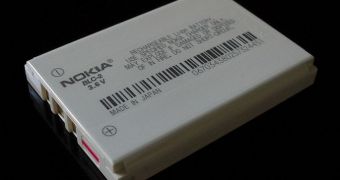It is sufficiently obvious by now that lithium-ion batteries will remain a staple of modern electronics for years to come, until fuel cell technology is sufficiently mature to take to the market. A Chinese startup is now taking its shot at fame, by improving an electrode material used in these batteries.
The Beijing-based company Wuhe argues that it managed to develop a low-cost, brand-new method of improving a material called lithium-iron phosphate, which is heavily used as an electrode in batteries.
What Wuhe is aiming for is becoming one of the world's leading producers of batteries that could conceivably lower the price of electric vehicle down to a level where more people will be able to afford them. Prices are currently the main obstacle preventing the wide adoption of these vehicles.
The way the company selected to achieve this mission is nanotechnology. Engineers there say that they were recently able to use nanoscale structures to improve electrode materials, enabling the latter to deliver electricity in the large bursts that are required during acceleration.
At the same time, the augmented materials are capable of maintaining their energy storage capacity, rather than deplete themselves in a single burst of energy. Wuhe officials say that their approach could cut battery-cell manufacturing costs by as much as 10 percent.
At this point, battery packs make up for the bulk of the costs associated with purchasing an electric car. Vehicles such as the Tesla Roadster and the Nissan Leaf need to either use large battery packs and remain expensive, or become more accessible by cutting down on the amount of electricity they carry.
The latter version is equally as bad, since most people are not willing to pay tens of thousands of dollars on electric vehicles that cannot even take them the 100 miles they have to commute every day.
Yu-Guo Guo, a professor of chemistry at the Chinese Academy of Sciences in Beijing, had this in mind when he founed Wuhe, and started working on ways to improve electrode materials. His solution was to incorporate iron-phosphate nanoparticles into the batteries.
Financially, the material required by the new electrodes is only 10 to 20 percent more expensive than the costs associated with producing lithium-iron phosphate in bulk. However, the initial investment is covered for later on in the production and use cycles, Technology Review reports.

 14 DAY TRIAL //
14 DAY TRIAL //